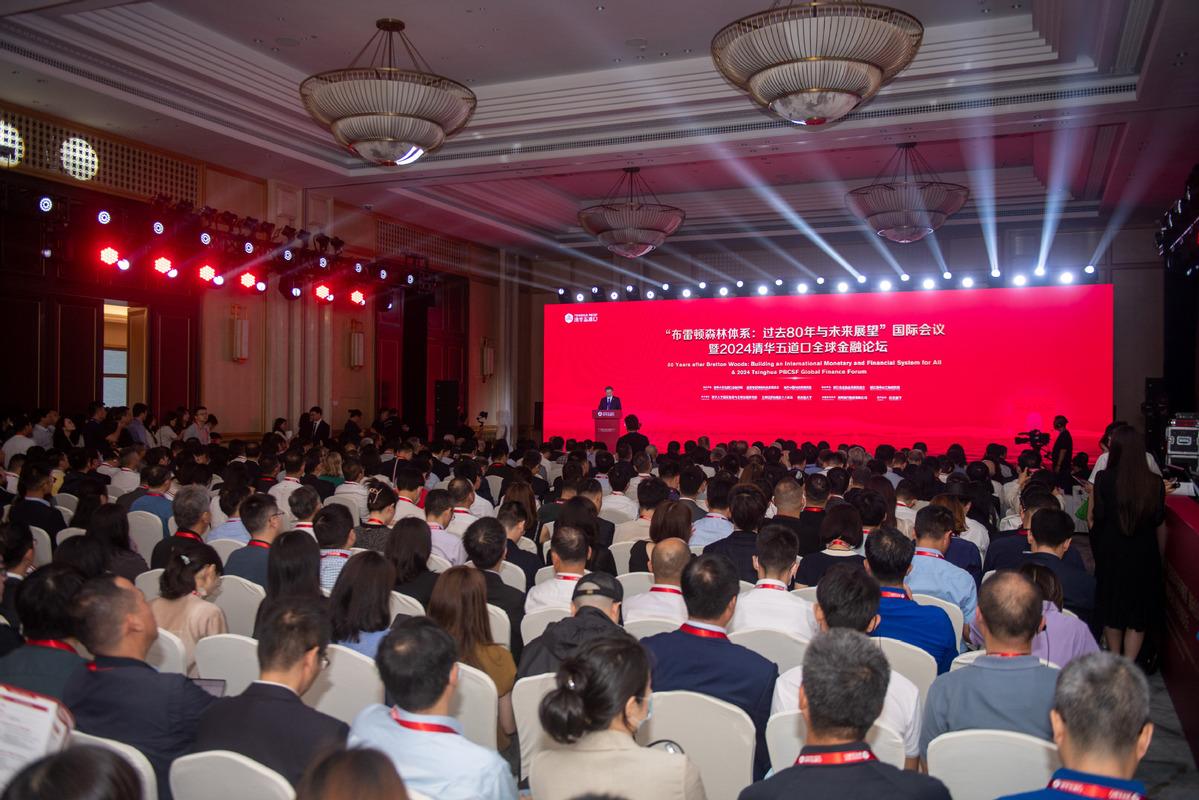
 0 Comment(s)
0 Comment(s) Print
Print E-mail China Daily, May 28, 2024
E-mail China Daily, May 28, 2024

The international conference "80 Years after Bretton Woods: Building an International Monetary and Financial System for All" and the 2024 Tsinghua PBCSF Global Finance Forum are held in Hangzhou, East China's Zhejiang province, May 27, 2024. [Photo/Xinhua]
All economies need to work together to promote financial stability and economic globalization while addressing common challenges facing the global economy like high inflation, rising protectionism and climate change, said experts and central bank governors at a global forum on Monday.
They also said that China's high-quality development will inject more positive energy into global economic growth. They said the world should reduce reliance on the US dollar-centered global financial system, as the United States tends to weaponize the greenback amid rising geopolitical tensions.
They made the remarks at the two-day 2024 Tsinghua PBCSF Global Finance Forum that kicked off on Monday in Hangzhou, Zhejiang province.
Zhu Min, founder of the Global Economic Governance 50 Forum and former deputy managing director of the International Monetary Fund, warned that geopolitical tensions are escalating, populism is gaining ground, economic growth is decelerating and the process of globalization is slowing further.
"Looking ahead, we need a new 'Bretton Woods system', one that will benefit all nations by providing financial stability and supporting economic growth for the future of all humanity," Zhu said.
Marc Uzan, executive director of the Reinventing Bretton Woods Committee, said that economies around the world need to figure out the fundamental way that can ensure financial stability and build an economic governance system that is in line with new conditions of the 21st century.
The world should cooperate to realize the low-carbon transition and fight climate change, which has caused extreme weather events and loss of biodiversity, Uzan said.
He stressed efforts to adapt the global economy to future technological advances and the emergence of digital currencies. Efficient infrastructure and platforms for digital transactions are needed to ensure interoperability among different systems, he said.
Massimiliano Castelli, managing director, head of Strategy & Advice at Global Sovereign Markets of UBS Asset Management, said that from both theoretical and practical standpoints, the world needs a financial system that is not overly reliant on the US dollar.
An increasing number of emerging market countries are reducing their US dollar reserves, and this is not solely a consequence of US sanctions against Russia. Rather, it reflects a growing trend among emerging markets to decrease their dependence on the dollar, he said.
If global geopolitical fluctuations intensify, countries may need to reduce their reliance on the dollar even further, he said.
Nobel Prize-winning economist Michael Spence stressed that powerful technologies can be used to reverse the slowdown in productivity. The Chinese economy, he said, will overcome difficulties to remain an important source of sustainable global growth.
Jiao Jie, chief financial officer of Tsinghua University and dean of Tsinghua University's PBC School of Finance, said that the Chinese economy has shifted to a phase of high-quality development, and by deepening reforms and expanding opening-up, China will build new economic advantages and boost growth momentum, thus driving global economic progress.
As global governance undergoes key changes, China is actively participating in global financial governance and policy coordination, engaging in multilateral cooperation and steering economic globalization toward greater openness, inclusiveness, balance and win-win results, Jiao said.
Go to Forum >>0 Comment(s)